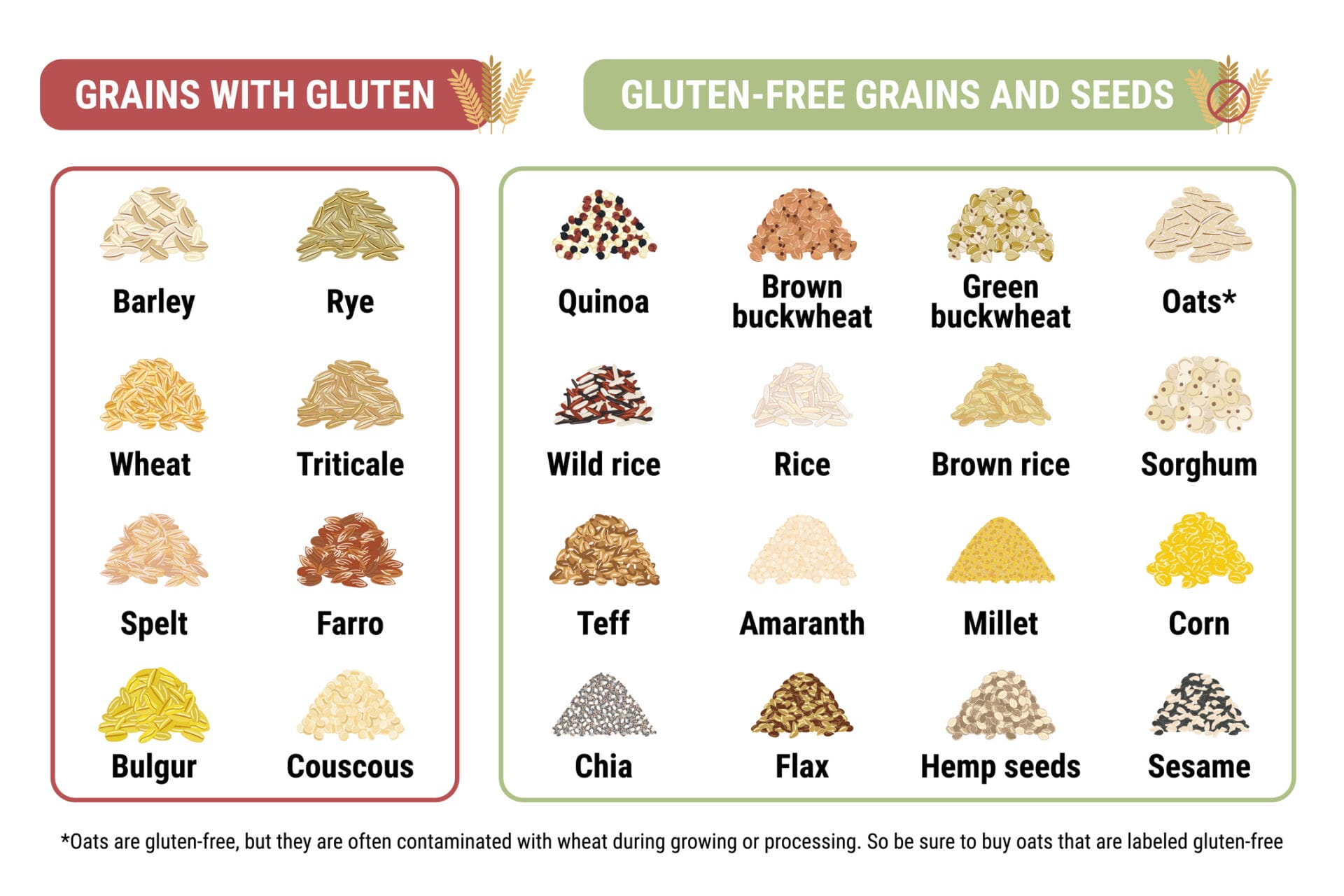What Is Coeliac Disease?
Coeliac disease is a long-term autoimmune condition, where your immune system attacks your own tissues when you eat gluten, therefore triggering a reaction and damaging the small intestine, affecting your ability to take in, and absorb, nutrients. With coeliac disease, the immune system mistakes substances found inside gluten as a threat to the body, which is why it attacks them. Coeliac disease affects at least 1 in 100 of the UK population, however, some experts believe this could be higher, as often symptoms go misdiagnosed.
If you have any of the following symptoms, for more than two weeks, please book an appointment with a MyHealthcare Clinic GP on 0207 099 5555 as soon as possible for advice.
Coeliac disease can cause a range of symptoms including:
· Abdominal pain
· Diarrhoea
· Bloating
· Flatulence
· Indigestion

Gluten is a dietary protein which is found in 3 types of cereal:
· Wheat
· Barley
· Rye
Gluten can be found in many foods which contain those cereals, including:
· Most types of bread
· Pasta
· Pizza
· Cakes
· Breakfast cereals
· Certain types of sauces
· Some ready meals
· Also, most beers are made from barley
Other possible symptoms of coeliac disease:
· Headaches and tiredness (fatigue) as a result of not getting enough nutrients from food (malnutrition)
· Unintentional weight loss
· An itchy, blistery rash (dermatitis herpetiformis)
· Problems getting pregnant (infertility)
· Nerve damage, including numbness and tingling in the feet and hands (peripheral neuropathy)
· Disorders that affect co-ordination, balance and speech (ataxia)
· Joint pain
· Reduced functioning of the spleen (hyposplenism)
Coeliac disease in children
Children with coeliac disease are more likely to have digestive problems. Children suffering coeliac disease may not grow at the expected rate for their age and may have delayed puberty, besides experiencing the symptoms seen in adults. If your child has the following symptoms, please contact MyHealthcare Clinic to get an appointment with our private consultant paediatrician.
Symptoms to look out for in children are:
· Nausea and vomiting
· Swollen tummy
· Chronic diarrhoea
· Constipation
· Flatulence
· Pale, foul-smelling stools
Treating coeliac disease
It’s not entirely clear what causes the immune system to act this way, but a combination of genetics and the environment appear to play a part. There is no cure for coeliac disease. However, following a gluten-free diet should help control symptoms and prevent the long-term complications of the condition. Complications only tend to affect people who continue to eat gluten. Even if you have mild symptoms, changing your diet is still highly recommended because continuing to eat gluten can lead to serious complications, for example:
· Malnutrition. This occurs if your small intestine can’t absorb enough nutrients. Malnutrition can lead to anaemia and weight loss. In children, malnutrition can cause slow growth and short stature.
· Bone weakening. Malabsorption of calcium and vitamin D can lead to a softening of the bones (osteomalacia, or rickets) in children and a loss of bone density (osteopenia, or osteoporosis) in adults.
· Infertility and miscarriage. Malabsorption of calcium and vitamin D can contribute to reproductive issues.
· Lactose intolerance. Damage to your small intestine might cause you abdominal pain and diarrhoea after eating, or drinking, dairy products that contain lactose. Once your intestine has healed, you might be able to tolerate dairy products again.
· Cancer. People with coeliac disease who don’t maintain a gluten-free diet have a greater risk of developing several forms of cancer, including intestinal lymphoma, and small bowel cancer.
· Nervous system problems. Some people with coeliac disease can develop problems such as seizures, or a disease of the nerves to the hands and feet (peripheral neuropathy).
It is important to ensure that your gluten-free diet is healthy and balanced. For more information about how to ensure a healthy and balanced gluten-free diet please contact MyHealthcare Clinic to arrange an appointment with our in-clinic dietician.
Who is affected by coeliac disease?
Reported cases of coeliac disease are around 3 times higher in women than men.
Coeliac disease can develop at any age, although symptoms are most likely to develop:
· In babies – between 8 and 12 months old, although it may take several years before a correct diagnosis is made
· In adulthood – between 40 and 60 years of age
People with certain conditions, including type 1 diabetes, autoimmune thyroid disease, Down’s syndrome and Turner syndrome, have an increased risk of getting coeliac disease.
First-degree relatives (parents, brothers, sisters and children) of people with coeliac disease are also at increased risk of developing the condition.
